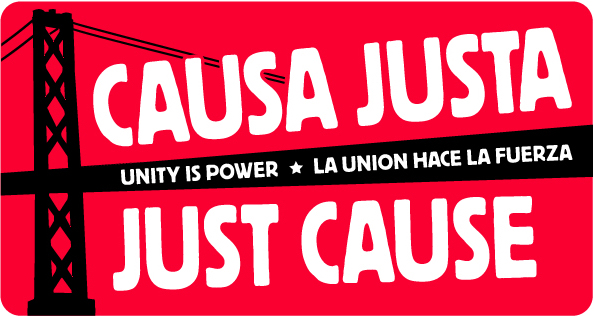community organizers from all over the country gather to develop a grassroots action plan for a humane and sustainable global economy
[Raleigh, NC] A national conference hosted by Wake County community organizers will be putting the power of democracy into action this week. A delegation from Causa Justa :: Just Cause will be there and sending Twitter and Facebook updates!
From September 16-18, 2011, members and allies of The Grassroots Global Justice Alliance (GGJ) will be joining forces to discuss what is really needed in communities most impacted by rising poverty, chronic unemployment, climate disruption, and increased natural disasters.
Hosted by Black Workers for Justice (BWFJ), the GGJ congress brings together representatives from poor, low-income and working-class communities from all over the country, as well as workers and organizers from Mexico and Brazil. BWFJ is hosting the congress in part to highlight that the economic crisis has hit the South harder than anywhere else in the country.
The Congress was originally scheduled for August 26-28, and was postponed due to Hurricane Irene. Rather than deter Congress participants, many have noted the connection between Irene and increased natural disasters due to greenhouse-gas driven climate disruption, and have committed to redoubling their efforts.
“Irene is just another example of how both the economic and ecological crises are escalating,” says Cindy Wiesner of the Grassroots Global Justice Alliance. “GGJ is made up of many frontline communities that are disproportionately impacted by these crises. It is our families and communities who can’t afford to wait for a bold change to our extractive economy that is destroying our planet and driving more and more people into poverty here in the U.S and across the world.”
In the aftermath of Obama’s jobs bill address, GGJ is demanding job creation that is not just a short-term fix, but job creation that is progressive and visionary, rooted in the growth of new and sustainable industries that can create not only healthy living-wage jobs, but also healthy environments and a cooler planet. This requires a significant expansion in the current tunnel vision of economic thinking.
“The government has a role to play in providing good jobs and regulating destructive activities – especially in this time of economic crisis,” says Wiesner. “This means stopping destructive projects like the Keystone XL pipeline and significantly reducing the money spent on the US military – the greatest greenhouse gas emitter in the world. This would free up a significant amount of money that could be invested in constructive projects and healthy jobs, including jobs in expanded mass-transit systems, sustainable agriculture, toxics cleanup and clean water infrastructure.”
The 3-day Congress will feature testimonials from local workers including members of the Farm Labor Organizing Committee, as well as inspirational stories of progressive change from international allies including women’s rights organizer Alessandra Ceregatti of the World March of Women-Brazil and labor organizer Marcos Antonio Velazquez Navarrete of the Hemispheric Social Alliance-Mexico.
Host organization Black Workers for Justice will share the highlights of its multi-faceted organizing work to defend human rights and the public sector throughout the state of North Carolina. Their powerful work includes the fight to preserve quality public education for all and to stop the school-to-prison pipeline in Wake County and beyond, organizing to promote true democracy in the form of people’s assemblies and in the face of conservative attacks on voting rights and fair districting zones, and defense of worker and youth rights through their collective bargaining for public sector workers and hip hop for justice campaigns.
GGJ exists to support and connect powerful organizing like BWFJ’s. We believe that lasting change happens when communities — like the low-income communities organized by BWFJ — lead through collective resistance and rights-based solutions tested and proven by experience on the ground. Since it’s founding in 2005, GGJ has connected more than 500 community organizers with international movement leaders from Latin America, Europe, Africa, and Asia. In the process GGJ is redefining international solidarity and building a global movement for peace, justice and a sustainable world from the ground up.
“This is a critical time in our region and in our nation for people to come together to resist the assaults on our communities and on our livelihoods,” says Ajamu Dillahunt, member of Black Workers for Justice. “We need a coordinated response to the cutbacks in jobs, services and the minimum safety net that had been established for families. Organizations such as GGJ and its affiliates have the vision and the capacity to lead, and to join with others, in building this movement for resistance and change.”

